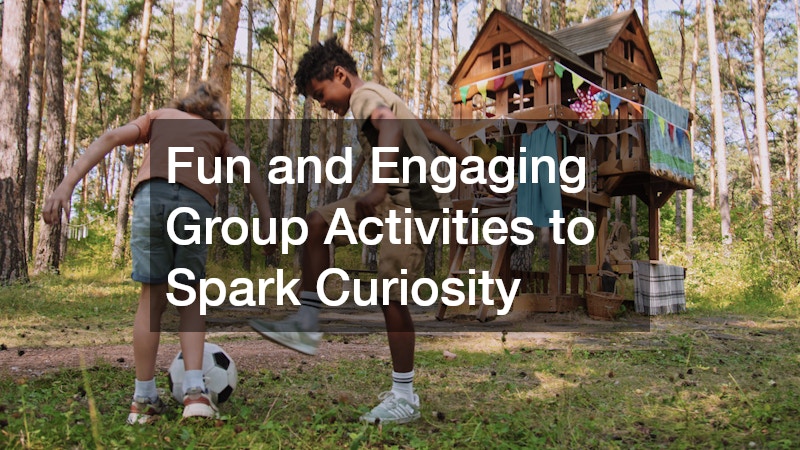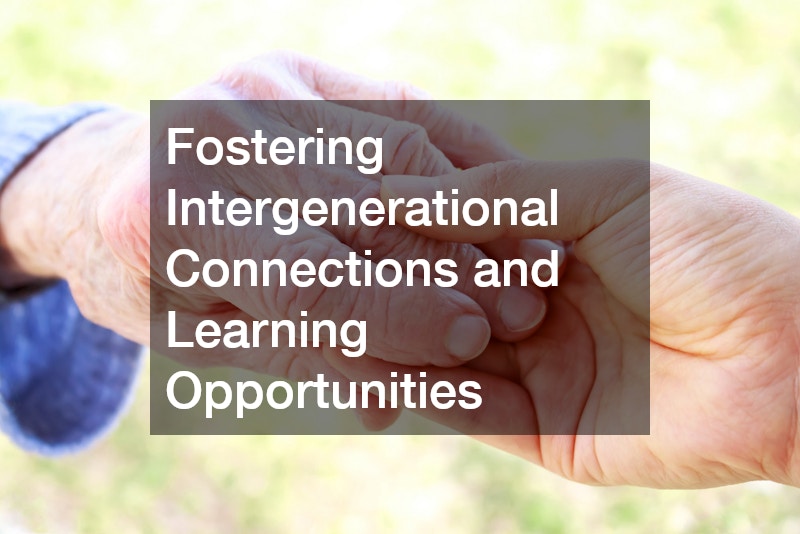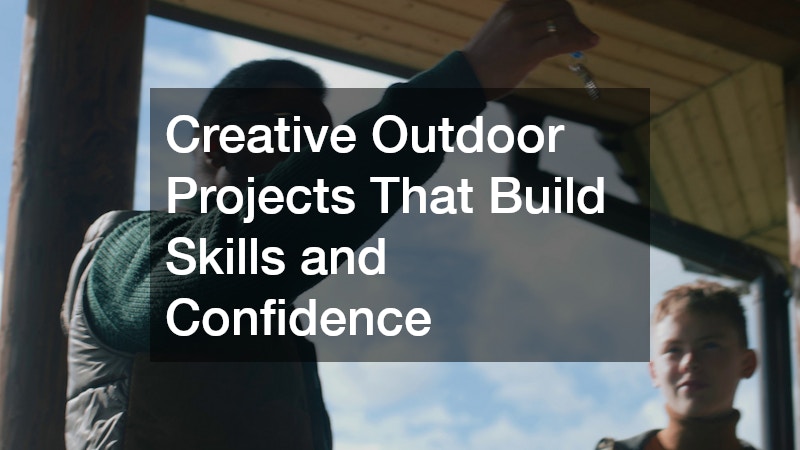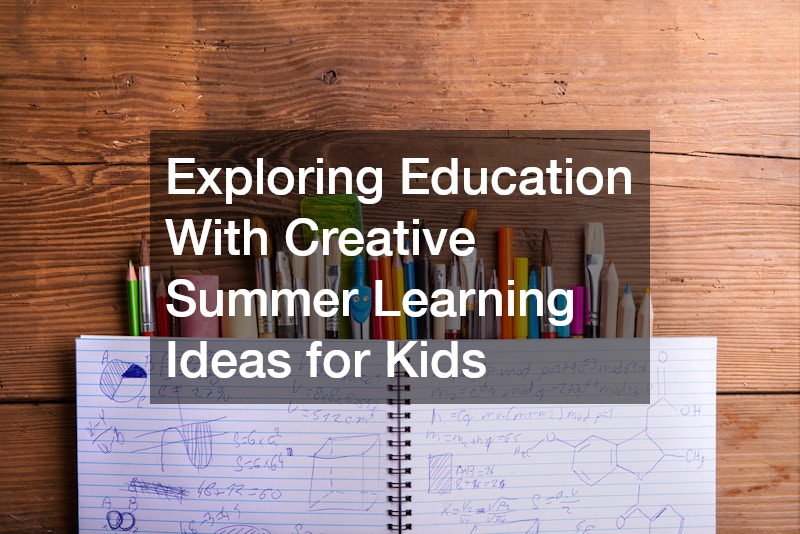In today’s fast-evolving world, exploring education has become crucial for nurturing curious minds and empowering the next generation. As we face numerous global challenges, there’s a growing need to foster creativity and critical thinking among youth and communities. To address this, innovative educational programs and activities that engage various age groups in hands-on learning have emerged. These activities not only enhance academic knowledge but also instill values of responsibility, sustainability, and collaboration. From interactive group sessions to practical environmental projects, these initiatives serve as a bridge between academics and real-world applications. Importantly, they’re designed to adapt to different learning paces, ensuring inclusivity and accessibility. By integrating technology and nature, these educational endeavors inspire participants to explore, experiment, and enrich their understanding of the environment and society. As we embark on a journey to explore this transformative landscape, it becomes imperative to set the stage for an inclusive and holistic learning approach that caters to all generations. Holistic, engaging, and impactful – these are the hallmarks of modern educational activities designed to awaken the explorer in each participant. As we delve deeper into these fascinating educational explorations, it becomes apparent that they go beyond traditional learning boundaries, creating a vibrant tapestry of discovery and innovation. Join us as we explore the exciting realms where education meets creativity and sustainability, paving the way for empowered, informed, and conscientious learners of all ages.
Fun and Engaging Group Activities to Spark Curiosity

Summer camps have long been a staple in exploring education. These camps provide unique opportunities for children and adolescents to immerse themselves in diverse activities that challenge and inspire creativity. They offer an environment where participants can explore new interests while forming lifelong friendships. Activities are carefully designed to spark curiosity and promote teamwork. By engaging in group challenges, campers learn the value of collaboration and discover their strengths. This hands-on approach enables them to build confidence, all while having fun. Furthermore, summer camps offer a break from traditional classroom settings, focusing on a holistic learning experience. Through outdoor adventures and interactive projects, campers engage with nature, science, and arts in a way that textbooks can’t replicate. These experiences are invaluable in instilling a love for learning and exploration that lasts a lifetime.
Building Foundations for Early Learning and Growth
The preschool program is pivotal in exploring education for young minds. Early childhood is a critical period for cognitive and emotional development, and preschools facilitate this through structured yet flexible curricula. These programs incorporate playful activities that nurture curiosity and foundational skills. Storytelling, arts, and music are often core components, enhancing language, social, and motor skills. By providing a safe and engaging environment, preschools help children feel secure while expressing themselves creatively. They also introduce the concept of structured learning, preparing children for future educational experiences. The integration of interactive and sensory-rich activities in the preschool program supports diverse learning styles. Teachers play a crucial role, acting as guides and mentors in this journey of discovery and growth. The program aims to cultivate a joyful and inquisitive mindset that will empower lifelong learning.
Teaching Kids About Responsible Technology Use and Recycling
Exploring education through the lens of technology use and ewaste recycling presents exciting possibilities. Educating children about the responsible use and disposal of electronic devices is essential in the digital age. This knowledge fosters an understanding of environmental stewardship and resource management. Programs focusing on e-waste recycling integrate practical lessons on how technology impacts the planet. Students learn the importance of reusing and recycling gadgets to reduce their carbon footprint. By engaging in workshops and projects, they discover innovative ways to give discarded technology a second life. These initiatives empower children to become proactive participants in creating a sustainable future. The exploration also raises awareness about consumption patterns, encouraging mindful technology practices. Through collaboration, students develop problem-solving skills as they tackle challenges associated with electronic waste management.
Fostering Intergenerational Connections and Learning Opportunities

The senior living community serves as a rich and dynamic environment for exploring education that bridges generations and fosters meaningful connections. Intergenerational programs within these communities create mutual benefits for both older adults and younger generations, offering opportunities to share wisdom, skills, and stories. Activities designed to encourage interaction help break down age-related barriers, cultivating cross-generational friendships and understanding. Through these shared experiences, participants build a tapestry of learning that enriches lives and broadens perspectives. The symbiotic relationships formed promote empathy, compassion, and respect among all involved. Engaging seniors in educational and social activities provides them with a renewed sense of purpose, mental stimulation, and social engagement, which are vital for well-being. For younger participants, these interactions offer invaluable life lessons, mentorship, and a deeper appreciation for history and experience. The connections fostered contribute to vibrant, inclusive community dynamics, highlighting the importance of lifelong learning. This exchange of knowledge and support enriches the social fabric and demonstrates the transformative power of education across all ages.
Hands-On Gardening Projects to Encourage Growth and Patience
Gardening offers a unique and engaging way to explore education through natural cycles and hands-on experiences. Having children plant vegetables, for instance, teaches valuable lessons in biology, ecology, and patience as learners observe growth from seed to harvest. Watching plants develop helps children and adults alike gain insights into life cycles, weather patterns, soil health, and environmental factors that influence growth. This form of education promotes awareness of sustainable gardening practices and encourages healthy eating habits by connecting learners with the source of their food. Engaging in gardening allows participants to build a meaningful connection with the earth, deepening their understanding of ecosystems and the interdependence of living things. The act of nurturing plants instills a strong sense of responsibility, accomplishment, and respect for nature. Through these hands-on experiences, learners discover the intricate balance between natural processes and human influence. The process encourages a mindful approach to resource management, water conservation, and environmental stewardship. When vegetables are finally harvested, the tangible rewards of their efforts reinforce the value of patience, care, and dedication in fostering life. Gardening, therefore, serves not only as a practical activity but also as a powerful metaphor for personal growth, imparting essential life skills such as perseverance, observation, and environmental awareness.
Promoting Environmental Awareness Through Safe Waste Practices
Exploring education in the context of waste management highlights the vital importance of responsible and sustainable practices for protecting the environment. Teaching communities about proper cooking oil disposal is one such impactful initiative that directly addresses pollution and ecological concerns. Proper disposal methods prevent clogged drains, water pollution, and harm to aquatic ecosystems that can result from careless waste handling. Through interactive workshops, informational campaigns, and community outreach, participants gain a clear understanding of the environmental impact caused by improper disposal. These educational efforts encourage individuals and families to adopt eco-friendly habits in their daily routines, fostering lasting change. Community-driven collection drives and strategically placed disposal stations provide practical, accessible solutions for safe cooking oil disposal. By promoting awareness and shared responsibility, these initiatives empower individuals to make informed, environmentally conscious decisions. Helping communities understand the entire journey of waste—from generation to safe disposal—encourages collaborative efforts to reduce pollution and protect natural resources. The initiative effectively showcases how small, collective actions can lead to significant, positive environmental outcomes, inspiring a deeper, long-term commitment to conservation and sustainability.
Exploring Clean Water and Its Importance in Daily Life

Water’s role in exploring education is profound, drawing attention to conservation, accessibility, and the science of sustainability. Installing a water filtration system exemplifies an educational endeavor that underscores the necessity of clean, safe water for health and well-being. Through this initiative, students learn about the science behind filtration technologies, water cycles, and the health implications of contaminated water. Clean water access is fundamental to communities worldwide, and educating individuals about filtration systems instills a strong sense of responsibility for resource management and environmental stewardship. Practical demonstrations, participatory projects, and experiments make these concepts tangible, relatable, and memorable for learners of all ages. Such initiatives also emphasize the global significance of water sustainability, highlighting issues like scarcity and pollution. By understanding water’s value and the challenges around its supply, students are encouraged to adopt, promote, and advocate for sustainable practices that conserve and protect this vital resource. Exploring these themes prepares students to tackle broader environmental challenges with informed and compassionate perspectives. The sustained impact of these projects highlights the transformative power of education in fostering lifelong water stewardship and global citizenship.
Learning About Sustainability Through Metal Reuse and Recycling
Teaching about metals in exploring education fosters a deeper understanding of industrial impacts on the environment and resource management. Scrap metal recycling provides an innovative educational platform to discuss concepts of industrial ecology and sustainability. Participants learn to identify various metals and understand their recyclability, reuse potential, and value in reducing waste. This initiative highlights the importance of conserving natural resources and minimizing ecological footprints by promoting circular economy principles. Through hands-on activities, such as crafting art or functional items from recycled metals, learning becomes interactive and inspiring. These projects encourage communities to rethink waste, foster resourcefulness, and cultivate creative problem-solving skills. By emphasizing sustainable and artistic applications, students develop a stronger appreciation for conservation, environmental ethics, and the interconnectedness of global systems, preparing them to be thoughtful stewards of the planet.
Discovering Nature and Science With Backyard Water Features
Koi ponds represent a serene and educational backyard feature that encourages exploration and hands-on learning. These water features introduce important lessons in biology, ecology, and design while fostering a deep appreciation for nature’s tranquility. Maintaining a koi pond teaches learners about aquatic life, water quality, and balanced ecosystems. With live fish and aquatic plants, individuals develop skills in careful observation, ongoing research, and daily care routines. Installing and managing a koi pond requires understanding water chemistry, filtration, and environmental factors, which enriches scientific knowledge. These activities seamlessly combine scientific inquiry with artistic design, inspiring curiosity, and creativity about natural spaces. Educational programs that incorporate koi ponds highlight biodiversity, environmental resilience, and the interconnectedness of life. Learners gain practical insights into habitat preservation and the importance of maintaining ecological harmony. Beyond education, koi ponds offer a peaceful retreat that nurtures mindfulness and well-being, providing a profound and lasting experience for both creators and observers.
Creative Outdoor Projects That Build Skills and Confidence

Exploring education within the context of outdoor projects challenges learners to build, design, and innovate. Creating outdoor structures encourages critical thinking, teamwork, and adaptability. Participants are prompted to sketch designs, calculate resources, and consider environmental impacts. The construction process integrates various academic disciplines, including mathematics, physics, and art. Each completed project becomes a monument of educational exploration and achievement. By constructing outdoor structures, individuals enhance problem-solving skills and adaptability to challenges. This hands-on approach explains the connections between theoretical knowledge and real-world applications. The satisfaction of creating something tangible boosts confidence and personal growth. As learners understand the relationship between human actions and environmental contexts, they contribute positively to community spaces.
In a rapidly changing world, the dynamics of education are evolving to meet the needs of modern learners. This holistic and immersive educational model integrates knowledge with real-world experiences. Exploring education by engaging with nature, technology, and community projects opens up limitless avenues for learning and growth. From summer camps that ignite curiosity to gardening that nurtures patience, each activity adds a layer of depth and understanding to the learning process. Such initiatives not only bolster academic skills but also build character, shaping individuals who are aware, responsible, and proactive. Engaging multiple generations fosters a learning environment rich with unique perspectives and wisdom, creating a collaborative and nurturing atmosphere. The vast array of subjects and activities ensures that learning is never static, but rather an ongoing adventure of discovery. As educators and leaders, embracing this model can cultivate informed, inquisitive, and empathetic global citizens. As our exploration of education deepens, the potential to encourage meaningful engagement and innovation becomes boundless. This educational approach emphasizes that learning is not confined to the walls of a classroom, but rather is a lifelong journey that encompasses all of life’s experiences. By embracing the dynamic tapestry of knowledge, creativity, and sustainability, we can inspire a future of conscious, curious, and committed learners.

